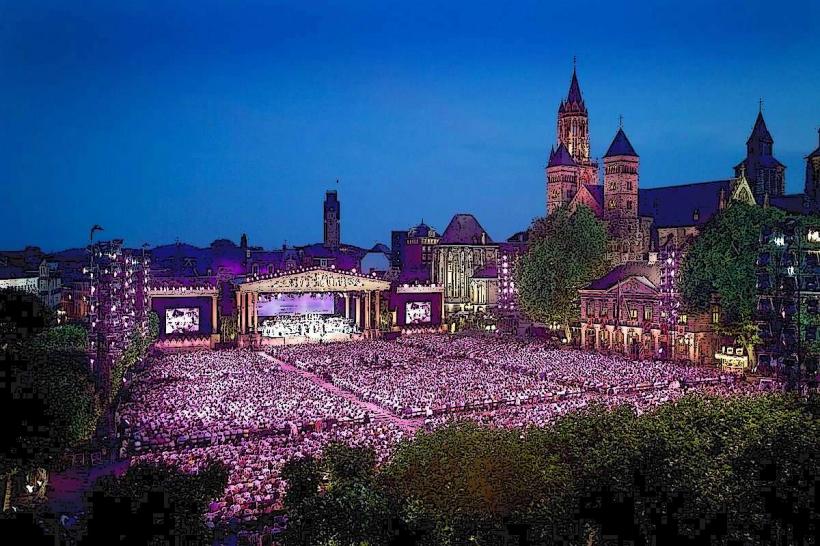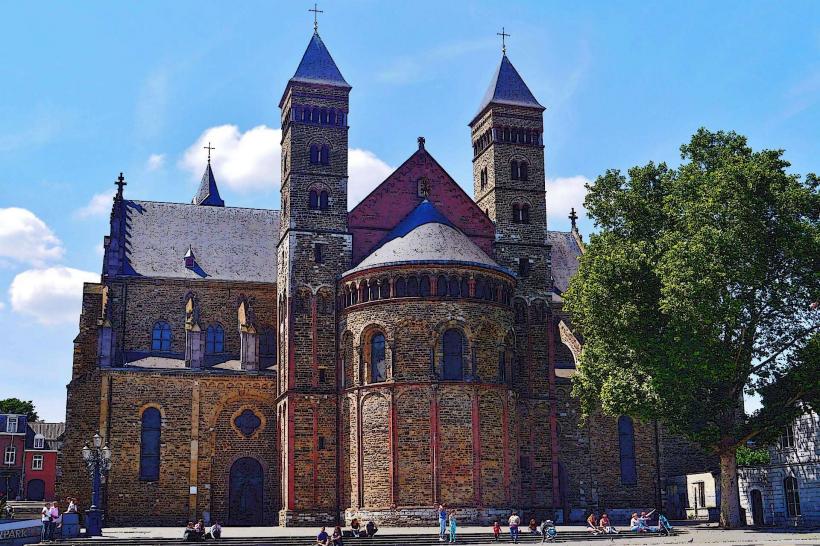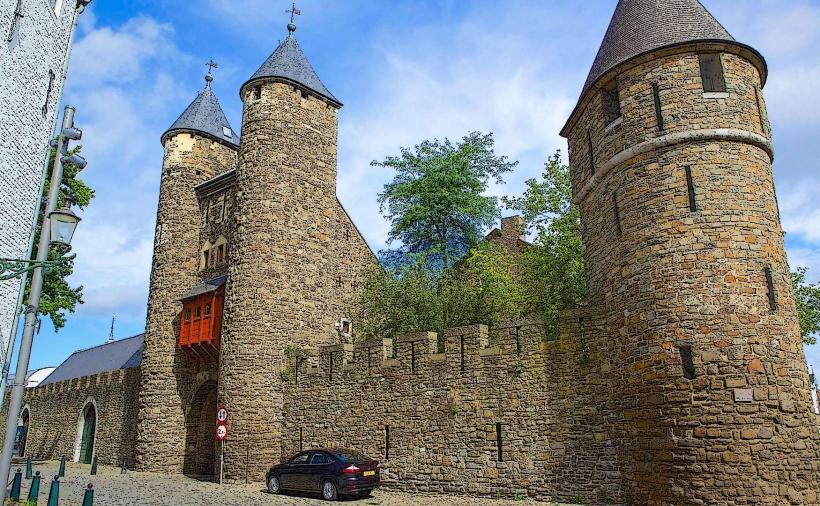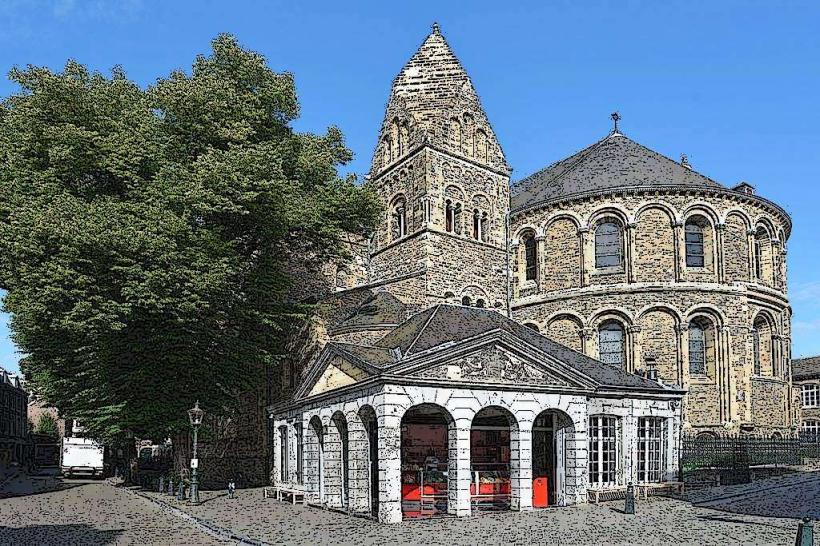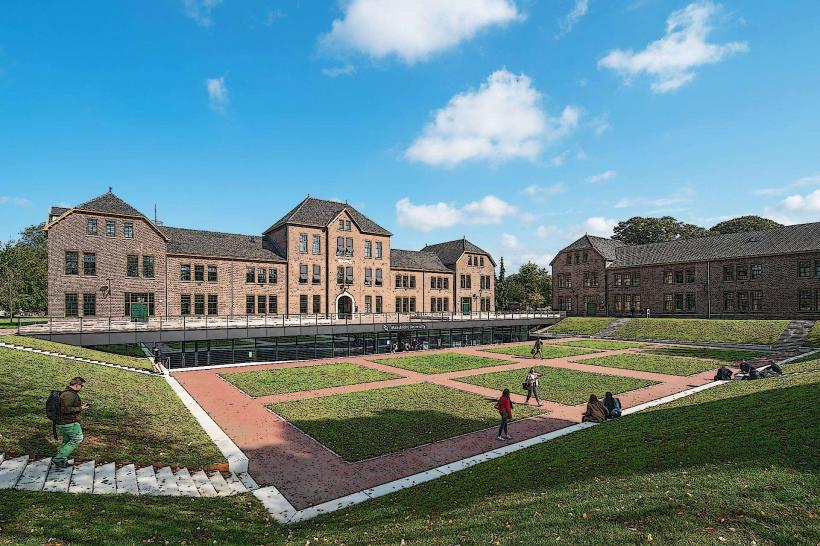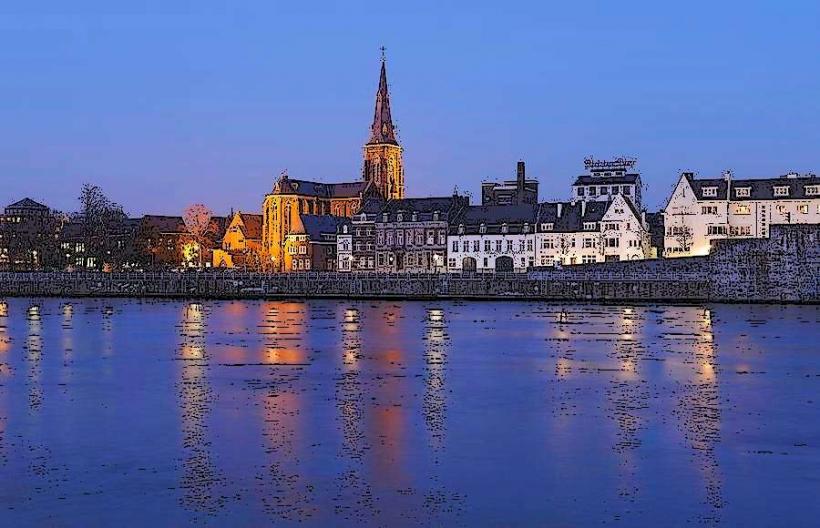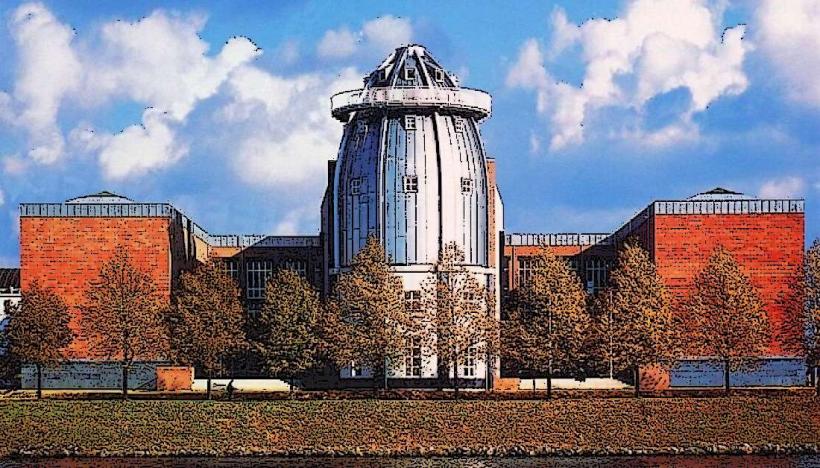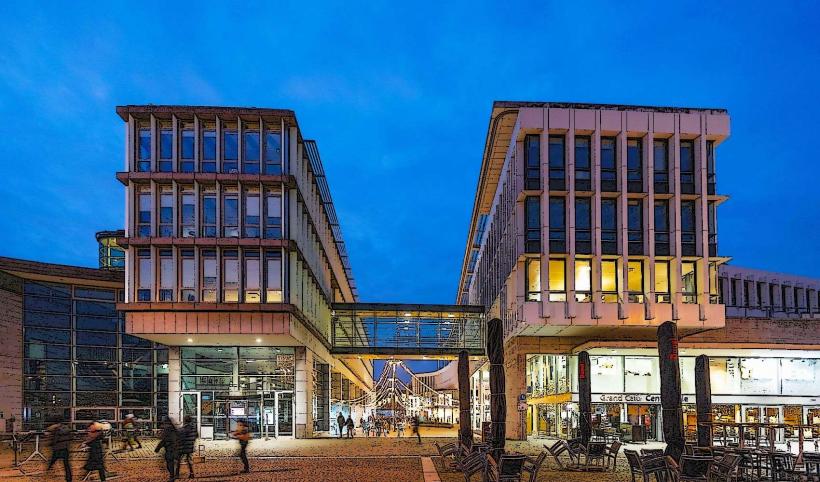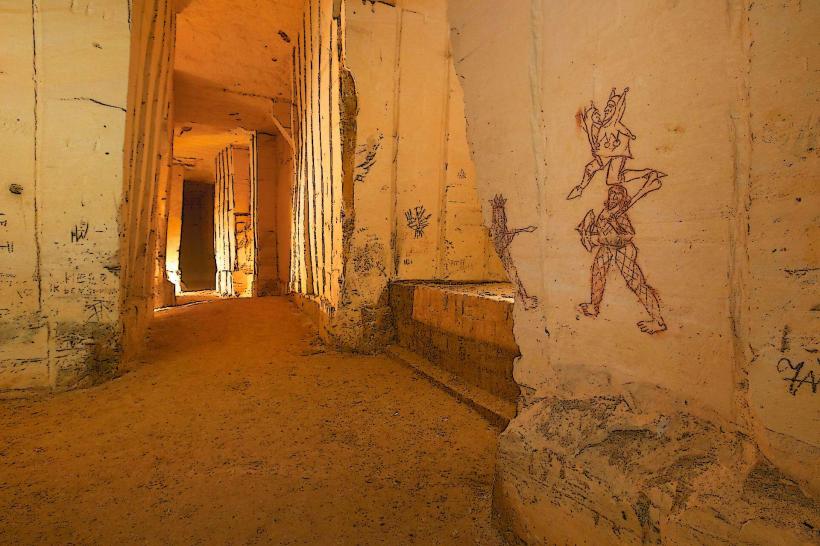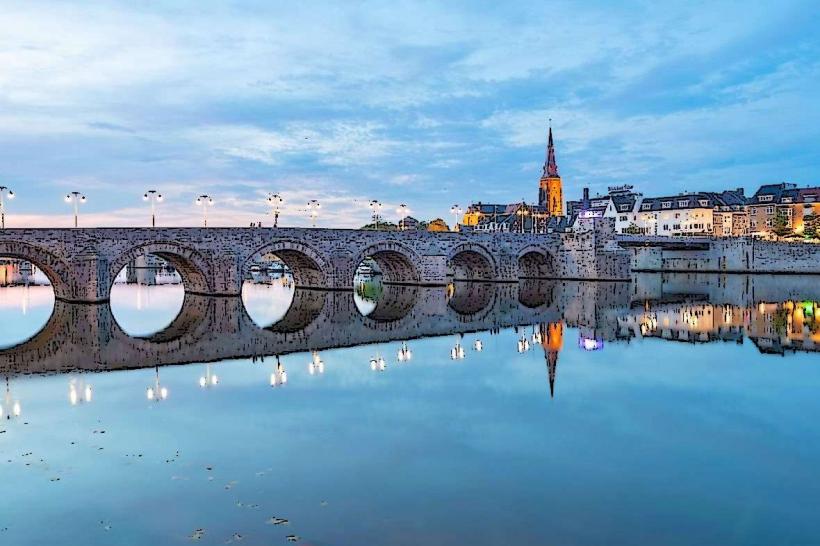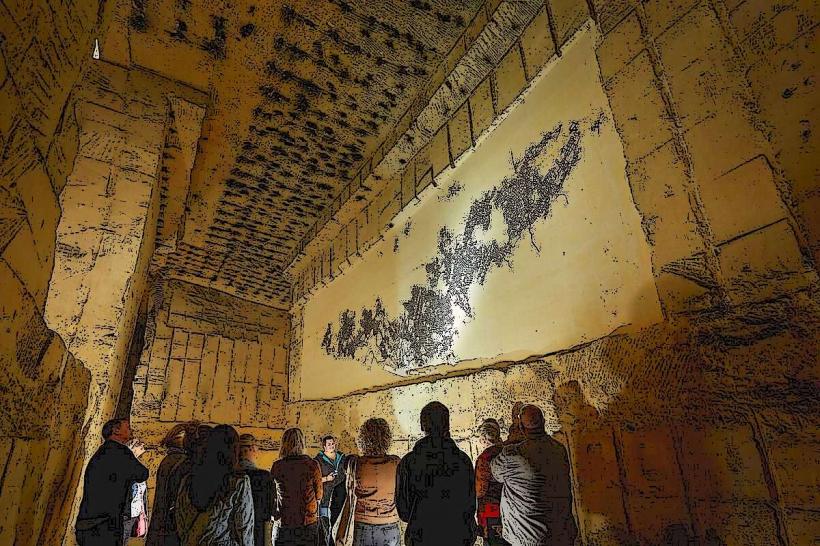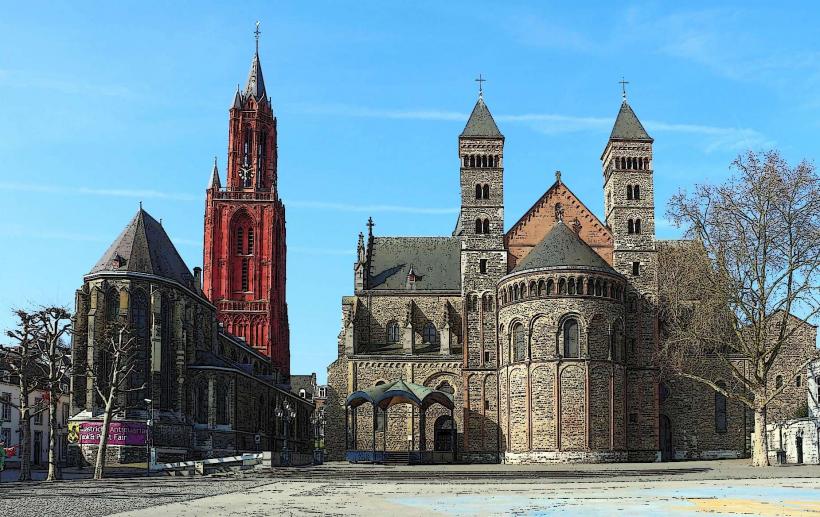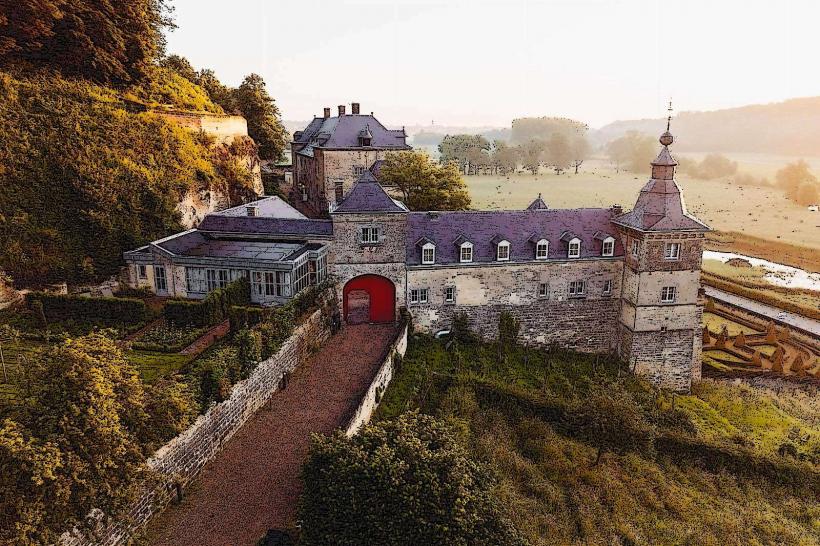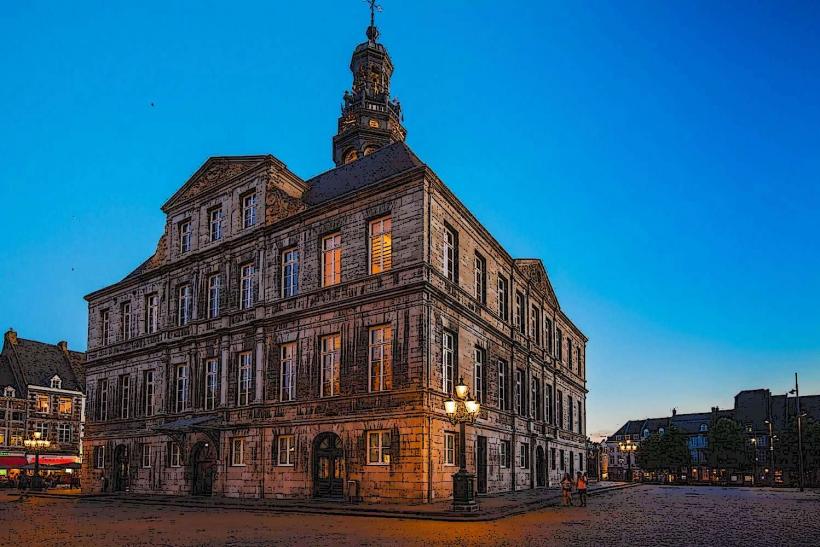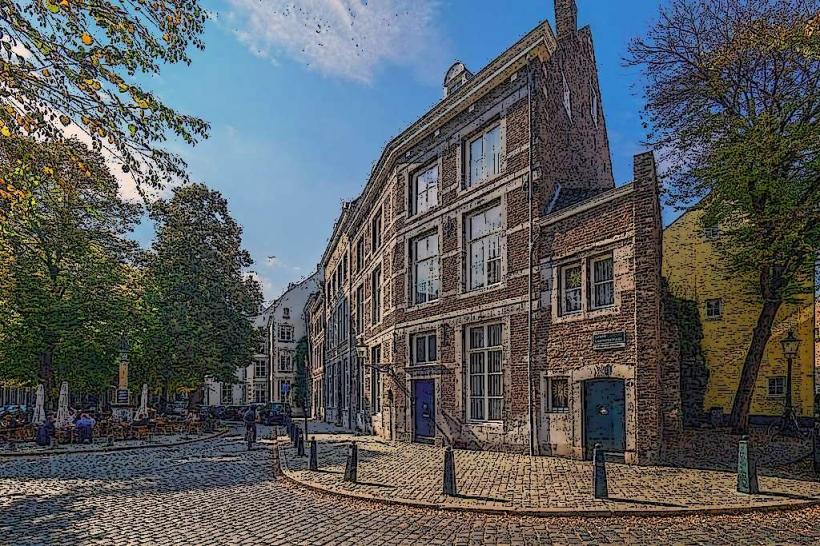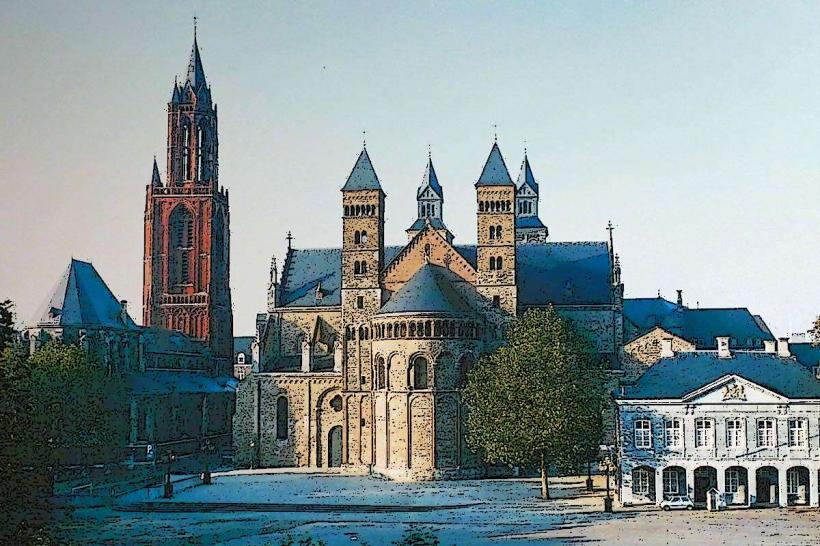Information
Landmark: JekerkwartierCity: Maastricht
Country: Netherlands
Continent: Europe
Jekerkwartier, Maastricht, Netherlands, Europe
Jekerkwartier is a historic neighborhood in the southwestern part of Maastricht's city center, named after the Jeker River that flows through the district. It is commonly referred to as the "Latin Quarter" of the city due to the presence of Maastricht University and various art academies.
Visual Characteristics
The district is characterized by narrow cobblestone streets, medieval limestone city walls, and watermills integrated into the Jeker River. Architecture consists of red-brick and marlstone facades, many dating to the 17th and 18th centuries, alongside preserved industrial structures like the Leeuwenmolen. The landscape includes steep sluice gates, iron bridges, and the lush vegetation of the adjacent Stadspark.
Location & Access Logistics
The neighborhood is bounded by the Vrijthof to the north and the city walls to the south and west. It is a 1.2km walk southwest from Maastricht Central Station via the Sint Servaasbrug. Vehicle access is restricted to local residents and permit holders in many streets; public parking is situated at the Q-Park Onze Lieve Vrouweplein or Vrijthof. Arriva bus lines 1, 3, and 4 provide stops on the perimeter at "Tongersestraat" or "Bouillonstraat."
Historical & Ecological Origin
Developed from the 13th century onwards, the area served as an industrial zone utilizing the Jeker's water power for tanning, milling, and brewing. Ecologically, the district is the primary entry point for the Jeker River into the city, where it splits into two branches before joining the Maas. The southern boundary is defined by the first and second medieval city wall expansions.
Key Highlights & Activities
Walking tours of the historic fortifications and the Helpoort gate are primary activities. Visitors can view the active waterwheels at the Bisschopsmolen, which houses an artisanal bakery. The district contains numerous independent art galleries, antique shops, and the Natural History Museum Maastricht.
Infrastructure & Amenities
The area is densely populated with small cafes, student bars, and high-end restaurants located in former tanneries. Public restrooms are available in the Natural History Museum and the University Library for patrons. 5G cellular signal is stable throughout the open streets, though interior reception in thick-walled limestone buildings is often limited.
Best Time to Visit
Late afternoon is optimal for photography, particularly along the river branches where shadows accentuate the medieval masonry. The district is most active during the university semester (September–June). Late spring (May) is ideal for visiting the botanical gardens of the Natural History Museum and the Stadspark.
Facts & Legends
A specific "secret" is the Faliezusterspark, a secluded green space near the city wall used by the former Faliezusters convent. Legend states that the "Heksenhoek" (Witches' Corner) near the river was a site of medieval superstitions, though it today serves as one of the most photographed residential spots in the city.
Nearby Landmarks
Helpoort (0.2km South)
Natural History Museum Maastricht (0.1km West)
Basilica of Our Lady (0.3km East)
Stadspark (0.1km South)
Bisschopsmolen (0.2km North)

